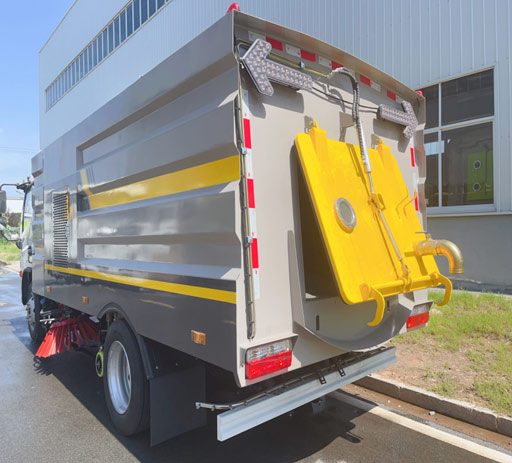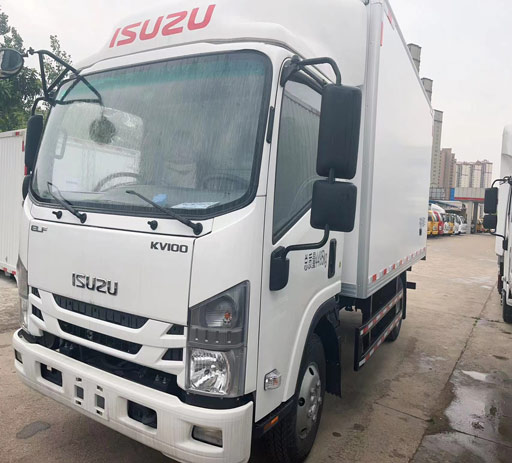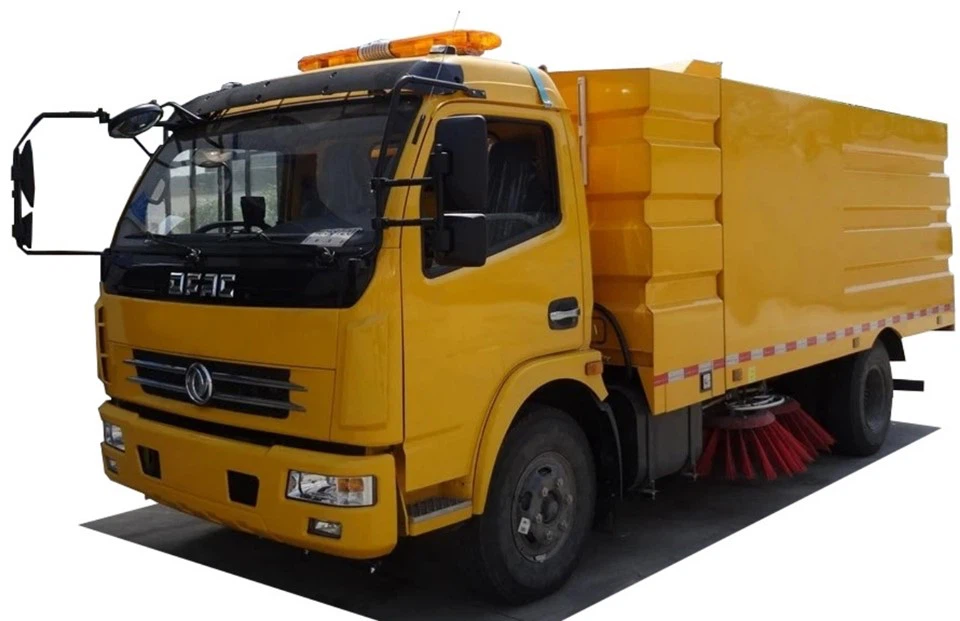Exploring the Future of Waste Management: The Rise of Automated Garbage Trucks

As urbanization accelerates and populations grow, the challenges of waste management become increasingly complex. Enter the automated garbage truck, a revolutionary solution that promises to streamline trash collection while promoting sustainability. In this article, we will explore what automated garbage trucks are, how they work, their benefits, challenges, and everything else you need to know about this innovative technology.
Table of Contents
- What are Automated Garbage Trucks?
- How Automated Garbage Trucks Work
- Benefits of Automated Garbage Trucks
- Challenges and Limitations
- Case Studies and Real-World Examples
- The Future of Automated Garbage Trucks
- Tips for Implementing Automated Garbage Trucks
- FAQs
What are Automated Garbage Trucks?
Automated garbage trucks are specialized vehicles designed to collect waste without the need for manual labor. These trucks are equipped with robotic arms that can lift and empty waste bins, which significantly reduces the need for labor-intensive garbage collection processes. Typically, they are used in residential and commercial settings for regular waste management.
Types of Automated Garbage Trucks
- Fully Automated Trucks: Operate without human intervention, using sensors and cameras to navigate and collect trash.
- Semi-Automated Trucks: Require an operator but still rely on automated systems to assist in lifting and emptying bins.
How Automated Garbage Trucks Work
These vehicles function through a combination of several technological advancements, including robotics, sensors, and GPS navigation. Here’s a breakdown of how they operate:
Key Components
| Component | Function |
|---|---|
| Robotic Arm | Lifts and empties waste bins into the truck. |
| Sensors | Detect obstacles and navigate the environment. |
| GPS Navigation | Provides optimal routes for efficiency. |
| Control System | Coordinates the robotic actions and navigation. |
Operational Process
- Truck arrives at the collection point.
- Robotic arm extends and receives a signal from sensors to grasp the bin.
- Arm lifts the bin and empties its contents into the truck.
- Truck navigates to the next collection point using GPS.
Benefits of Automated Garbage Trucks
The implementation of automated garbage trucks introduces numerous benefits for municipalities and waste management companies alike.
Improved Efficiency
Automated garbage trucks can significantly cut down on the time required for waste collection. With a robotic arm that swiftly and efficiently handles bin emptying, collection routes can be completed more quickly.
Safety Enhancements
Occupational hazards associated with manual garbage collection, such as injuries from lifting heavy bins or being exposed to hazardous materials, are minimized with automation.
Cost Reduction
Despite the upfront investment, automated systems can lead to long-term savings by reducing labor costs and optimizing routes to decrease fuel consumption.
Environmental Impact
Automated garbage trucks contribute to more sustainable waste management practices, such as reducing emissions by taking the most efficient routes and being less reliant on diesel fuel.
Challenges and Limitations
Despite their advantages, automated garbage trucks also face challenges that need to be addressed for successful implementation.
High Initial Costs
The investment required for automated garbage trucks can be substantial, which may deter some municipalities from adopting the technology.

Technology Limitations

In areas with complex layouts or adverse weather conditions, the sensors and navigation systems may struggle to operate effectively, leading to inefficiencies.
Training Requirements
Personnel may require training to operate and maintain the sophisticated systems that power automated garbage trucks.
Case Studies and Real-World Examples
Several cities have successfully deployed automated garbage trucks, showcasing their potential benefits.
Case Study: San Diego, California
San Diego implemented automated garbage collection in residential areas, resulting in a 20% increase in efficiency and a significant reduction in labor costs.
Case Study: Amsterdam, Netherlands
Amsterdam utilized automated trucks to navigate its canals, leading to a more fluid collection process and reduced pollution in urban areas.
The Future of Automated Garbage Trucks
Looking ahead, automated garbage trucks are poised to play a crucial role in the modernization of waste management. Developments in artificial intelligence could lead to even more advanced systems capable of making decisions and adjustments on the fly.
Integration with Smart City Infrastructure
As cities evolve into smart hubs, automated garbage trucks will increasingly be integrated with other services to enhance urban management.
Further Sustainability Innovations
Future automated trucks may feature electric propulsion systems, advanced recycling technology, and capabilities for organic waste composting.
Tips for Implementing Automated Garbage Trucks

For municipalities interested in adopting automated garbage trucks, consider the following tips:
Conduct a Feasibility Study
Analyze current waste management practices and evaluate the potential impact of automation.
Start with Pilot Programs
Implement a limited pilot program to assess the technology’s effectiveness before full-scale deployment.
Engage the Community
Inform and involve community stakeholders to gain support for the initiative, addressing any concerns they may have.
Continuous Training and Support
Ensure ongoing training and support for staff to improve their comfort and efficiency with the new technology.
FAQs
1. What are the main advantages of automated garbage trucks?
Automated garbage trucks offer improved efficiency, enhanced safety, long-term cost reduction, and a lower environmental impact.
2. Are automated garbage trucks suitable for all urban environments?
While they are effective in many urban settings, they may face challenges in areas with narrow streets, high traffic, or extreme weather conditions.
3. What is the life expectancy of an automated garbage truck?
Most automated garbage trucks have a life expectancy of 8 to 12 years, depending on usage and maintenance practices.
4. How do automated garbage trucks handle hazardous waste?
Some automated trucks can be equipped to handle hazardous waste, but proper procedures and regulations must be followed to ensure safety.
5. Is there a significant difference in the cost between automated and manual garbage trucks?
Yes, while automated trucks have higher upfront costs, they can result in labor savings and operational efficiencies that may offset those initial investments over time.
